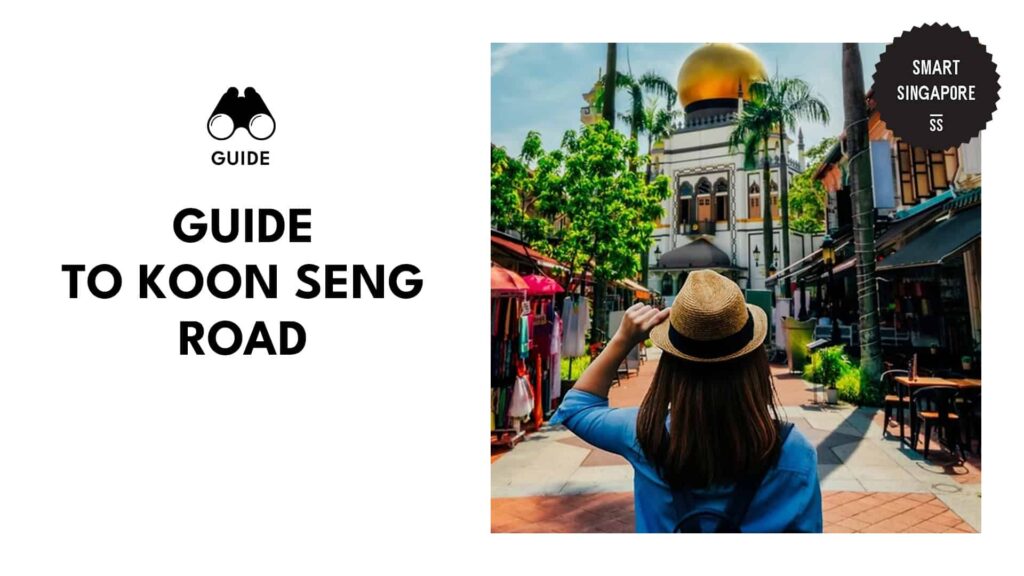Categories > Guides and Tips
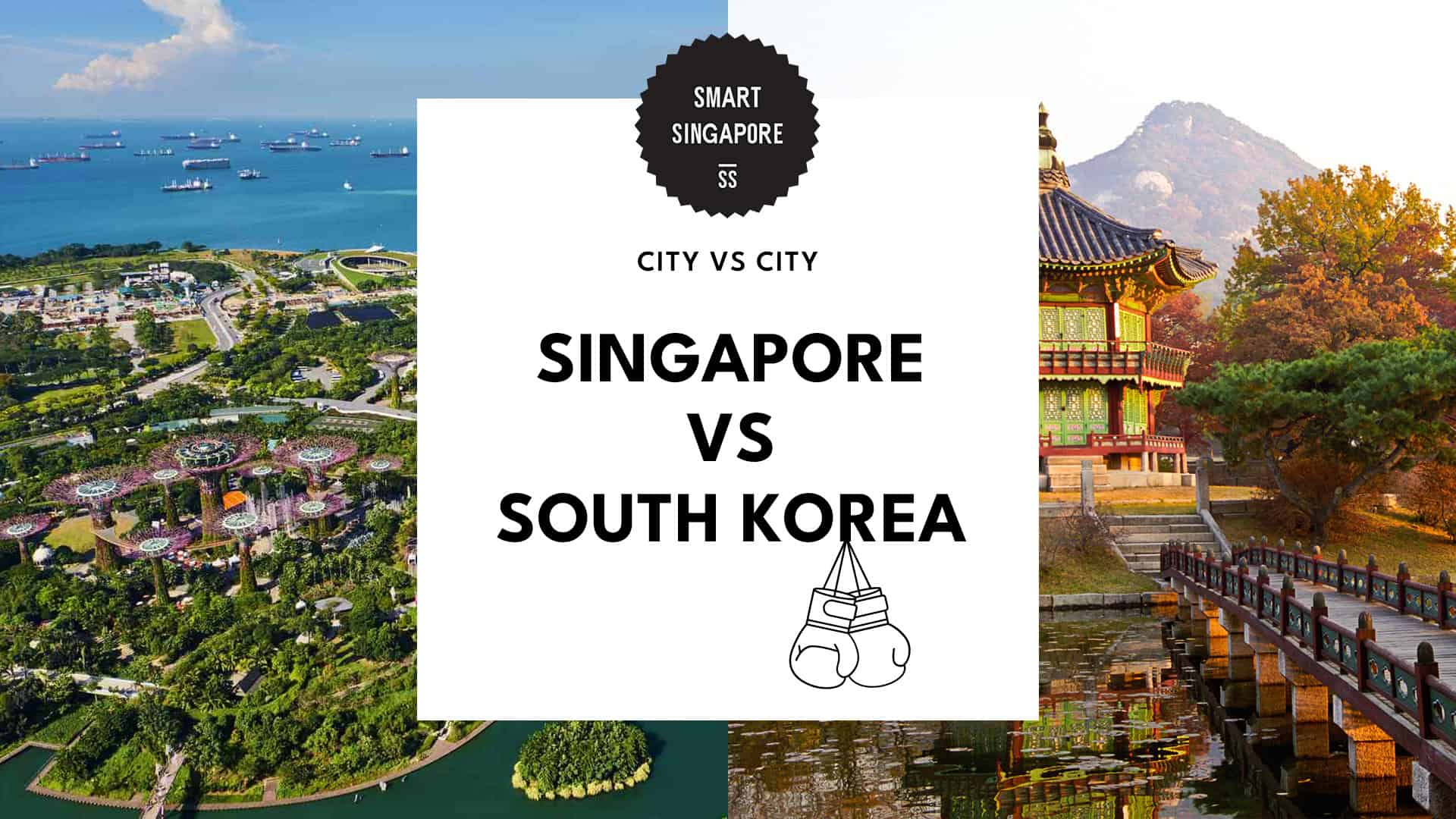
Living in Singapore vs. South Korea
- Cost of Living in Singapore vs. South Korea
- Real Estate Prices in Singapore vs. South Korea
- Diversity and Demographics in Singapore vs. South Korea
- Career Opportunities in Singapore vs. South Korea
- Crime and Safety in Singapore vs. South Korea
- Lifestyle in Singapore vs. South Korea
- Weather in Singapore vs. South Korea
- Tourism in Singapore vs. South Korea
- Healthcare in Singapore vs. South Korea
- Singapore vs. South Korea: Which is better?
Can’t decide whether to move to Singapore or South Korea? These two Asian countries are among the most developed in the world, so it’s not hard to see why many people who want to move to Asia stumble upon this dilemma.
If you prefer a fast-paced life, small-city living, and tropical weather, Singapore is your best bet. If cultural activities, changing seasons, and colder weather are what you’re after, then South Korea might be a better choice for you.
To give you a better idea of which country is better, here’s a Singapore vs. South Korea guide to help you make an informed decision.
Cost of Living in Singapore vs. South Korea

| The cost of living in Singapore is over 2% higher than in South Korea, with average monthly living costs amounting to $5,500. Meanwhile, the average monthly living costs in South Korea amount to $1,600 for a single person. This is mainly due to the lower consumer costs in South Korea, which is about 35% lower than in Singapore. |
Monthly living expenses include the cost of rent, utilities, childcare, and transportation. Living in Singapore is significantly more expensive if you’re living on your own.
| Expenses | South Korea Cost | Singapore Cost |
| Housing (Average Rent per Month) | ||
| 1-bedroom apartment (downtown) | $1,138 | $3,769 |
| 1-bedroom apartment (outside the city centre) | $691 | $2,657 |
| 3-bedroom apartment (downtown) | $3,608 | $7,125 |
| 3-bedroom apartment (outside the city centre) | $2,082 | $4,973 |
| Utilities (Average Monthly Bill) | ||
| Utility bill for one person | $210 | $238 |
| Internet plan | $32 | $46 |
| Transportation (Fare) | ||
| 1-way ticket (local transport ticket) | $1.43 | $2.00 |
| Monthly pass (local transport ticket) | $60 | $128 |
| Taxi start (normal tariff) | $4.73 | $4.30 |
| Gasoline (1 litre) | $1.66 | $2.83 |
| Childcare and Education | ||
| Preschool or kindergarten | $510 per month | $1,498 per month |
| Primary school (private and international) | $27,273 per year | $36,492 per year |
The average cost of living expenses is based on people living in South Korea’s capital city, Seoul, and Singapore. Despite that, living in Singapore (inside and outside the city centre) is still significantly more expensive than living in South Korea’s capital city.
To put it simply, a family would need an average of $7,000 per month to live in Seoul with the same standard of living you would enjoy in Singapore for $11,000 a month.
Consumer prices without rent are still significantly lower in South Korea, but Singapore has lower grocery prices. Choosing to live between the two cities boils down to how much you can set apart for food, utilities, and childcare if you have a family.
Real Estate Prices in Singapore vs. South Korea

| Singapore has higher real estate prices than South Korea. A single-family home in Singapore costs roughly $5,367,170, while prices reach an average of $571,796 for HDB flats. Real estate prices in South Korea, on the other hand, cost $808,260 for landed or detached housing and $692,770 for condos or apartments. |
It’s important to note that Singapore is smaller in land area than South Korea and its capital city, Seoul. Landed or detached housing is less available than in Seoul, with many options for families to purchase subsidised housing.
In Seoul, however, high-rise condos tend to be more expensive than detached housing, as prices can go as high as $16,000 per square metre. If we’re looking at a unit that will fit a single family (about 130 square metres), that’s about $2,171,000 for a condo.
| Property Type | South Korea | Singapore |
| Single-Family Home (Detached or Landed) | $808,260 | $5,367,170 |
| Condo or Apartment | $692,770 | $571,796 |
Diversity and Demographics in Singapore vs. South Korea

| South Korea is an ethnically homogeneous country compared to Singapore, which has several ethnic minorities living condensed within various districts on the island. South Korea’s foreign minority population stands at 4%, with the majority from China, Vietnam, Thailand, and the United States. Meanwhile, Singapore has three main ethnic minorities namely Chinese, Malay, and Indian, collectively comprising 96.8% of its total population. |
We should still heavily consider that Singapore is a small city-state with densely populated ethnic neighbourhoods. Seoul is a large capital city in East Asia where most countries are ethnically homogeneous.
For a better view of South Korea’s and Singapore’s racial composition, refer to the table below with data collected from Index Mundi:
| Racial Composition | South Korea | Racial Composition | Singapore | |
| Korean | 96% | Chinese | 74.2% | |
| Other | 4% | Malay | 13.7% | |
| Indian | 8.9% | |||
| Other | 3.2% | |||
South Korea also has a significantly higher population than Singapore. The population of its capital city alone, Seoul, (10 million) is relatively higher than Singapore’s whole population (6 million).
| South Korea | Singapore | |
| Geographic Location | East Asia | Southeast Asia |
| Size (Area) | 100,032 square kilometres | 734.3 square kilometres |
| Total Population | 51,741,963 | 6,044,290 |
| Female Population | 50.1% | 47.78% |
| Male Population | 49.9% | 52.22% |
| Median Age | 44.5 years old | 42.8 years old |
| Life Expectancy at Birth | 84.1 years old | 84.27 years old |
Moreover, there is a larger percentage of females in South Korea than in Singapore. Margins are fairly close to each other, running between 45% and 52%.
It’s important to note, however, that South Korea’s total yearly population growth rate has seen a rapid decline over the past five years. Before a slight growth in 2012, the country’s population growth started declining in 1990.
Age-wise, Singapore’s population is slightly younger than South Korea’s, with a median age of 42.8 years old. Life expectancy for both countries is roughly the same, on the other hand.
Career Opportunities in Singapore vs. South Korea

| According to Statista, both South Korea and Singapore show favourable job landscapes as both countries show unemployment rates below 3%. Singapore’s unemployment rate declined to 2.1%, while South Korea’s unemployment is slightly higher at 2.60%. |
Objectively, Singapore takes the cake in terms of employment, but both countries offer favourable career opportunities for young professionals.
The average annual salary of full-time professionals in Singapore is $69,396, while in South Korea, it’s $46,056.
Professionals are likely to be paid more in Singapore, but it’s important to consider that monthly expenses are also relatively higher there compared to South Korea.
Crime and Safety in Singapore vs. South Korea
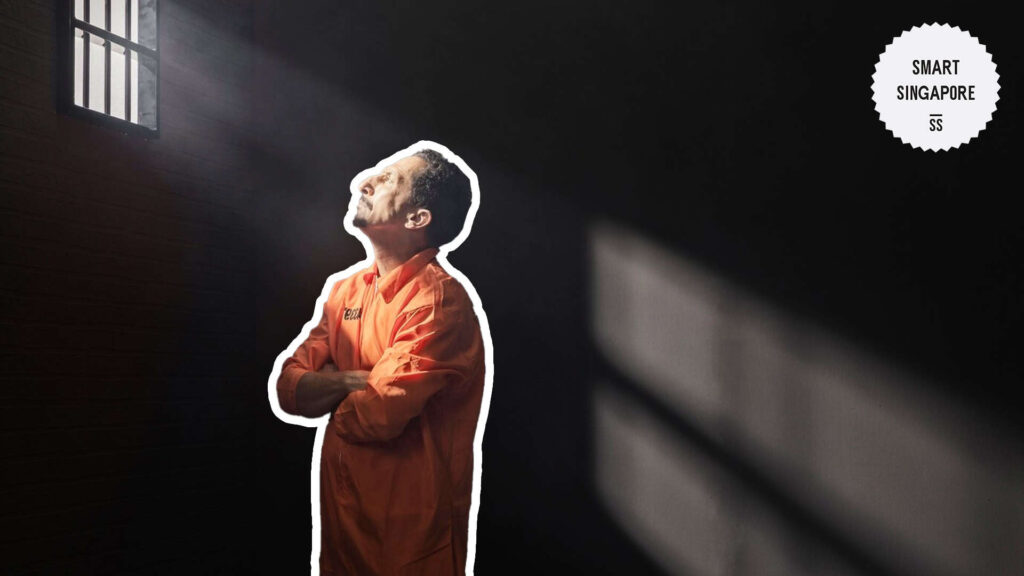
| According to Numbeo, Singapore is a safer country, with a crime index of only 23.5% and a safety index of 76.5%. The numbers for South Korea, however, aren’t too far apart at 24.9% and 75.1%, respectively. Both countries have seen a steady decline in reported arrests over the past 10 years, which shows how hard each country’s governments are working and how much they are spending towards crime relief. |
Despite that, it’s important to note that although both countries have low crime index rates, there are huge differences in their most common crimes committed.
Human trafficking and digital sex crimes are two of the biggest and most widespread crimes in South Korea, with over 6,000 cases of digital sex crimes, over 1,800 cases of child sexual assault, and over 6,800 cases rape reported between 2019 and 2020.
It’s clear that Singapore boasts one of the world’s lowest crime rates, with typical offences including acts like indecent behaviour, shoplifting, public disturbance, and invasion of privacy.
| Key Insights (2022) | South Korea | Singapore |
| Total number of crime cases | 323,7000 | 53,862 |
| Crime rate per 100,000 people | 3,051 | 847 |
| Number of drug crimes | 8,500 | 2,826 |
| Number of sex crimes | 21,200 | 9,629 |
| Number of crimes related to violence | 39,300 | 21,193 |
| Number of crimes related to theft | 113,700 | 7,878 |
| Average age of violators | 51 to 60 years old | 30 to 39 years old |
| Number of arrests per year | 1,130,000 | 53,862 |
Lifestyle in Singapore vs. South Korea
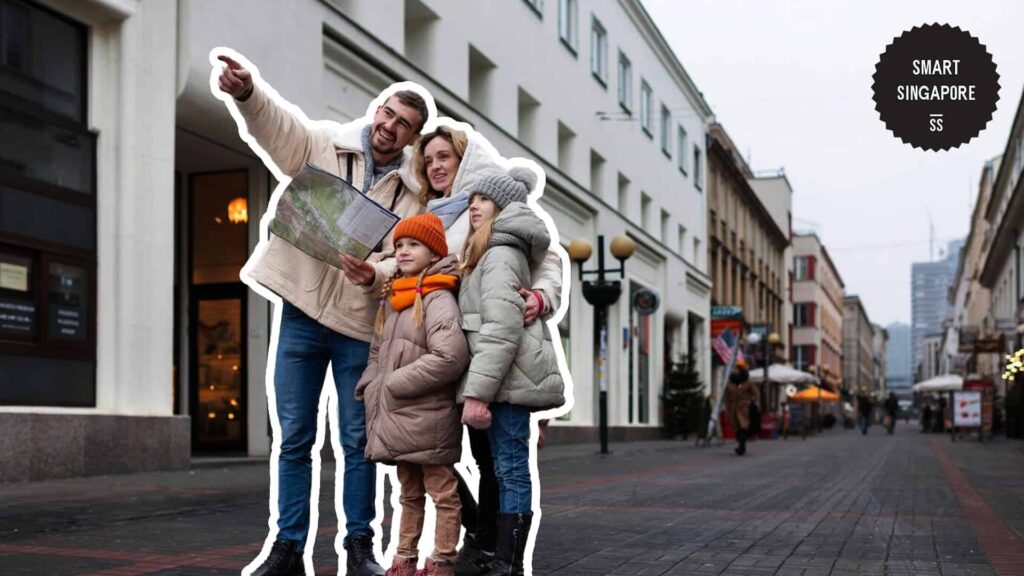
| Singapore is an ideal place to live in if you love a fast-paced life and urban living in a tropical setting, with easy access to both natural landscapes and business districts. On the other hand, South Korea is your best bet if you love observing seasonal holidays and annual cultural celebrations with friends and family. |
To get a closer look at the type of lifestyle offered in both countries, we compare each of them in detail based on several factors, such as the weather, recreational activities, tourism, and healthcare.
Weather in Singapore vs. South Korea

Singapore has a tropical climate where it’s hot and humid all year long, while South Korea has a humid continental climate where seasons change four times a year.
If you enjoy sunny days and tropical climates, Singapore takes the cake, especially if you want to live close to an islander’s life. South Korea, on the other hand, has four seasons: spring, summer, autumn, and winter.
It’s important to note that South Korea is a peninsula, with regions and provinces experiencing various climates and weather conditions within a year.
Tourism in Singapore vs. South Korea

South Korea’s changing seasons offer drastic natural landscape shifts, ideal for attending seasonal celebrations. Festivals like sambok, samjinnal, and chuseok mark important dates.
In Singapore, ethnic minorities celebrate traditional festivals like Deepavali and Eid al-Fitr, while the Lunar New Year is common in both countries.
As for places to visit, Singapore can easily be explored in a few days and boasts urban green spaces, parks, wildlife reserves, and coastal areas.
South Korea’s tourist attractions include cultural sites, historical landmarks, heritage villages, and nightlife hotspots, with opportunities to wear traditional garments and visit centuries-old palaces.
Singapore offers sandy beaches, luxury accommodations, and vibrant nightlife, while South Korea emphasises cultural immersion, historical exploration, and culinary delights.
Choose Singapore for tropical getaways and convenience, and South Korea for a slower-paced vacation with rich cultural experiences.
Healthcare in Singapore vs. South Korea

Healthcare services in Singapore and South Korea are among the best in Asia. Data from Numbeo shows that Singapore has a healthcare system index of 70.91 while South Korea has 82.67.
The healthcare system index is an estimated valuation of a country’s overall quality of its healthcare system.
Factors that contribute to the increase or decrease of estimations include services, accessibility to healthcare, infrastructure, and the resources available.
The data from Numbeo shows that South Korea has a higher healthcare system index, owing to the country’s higher skill competency of its medical staff, cost, equipment, and responsiveness, to name a few.
Below are some of the factors that affect the overall healthcare index in both countries:
| South Korea | Singapore | |
| Skill and competency of medical staff | 82.66% | 74.66% |
| Speed in completing examinations and reports | 85.97% | 72.30% |
| Equipment for modern diagnosis and treatment | 90.11% | 91.29% |
| Accuracy and completeness in filling out reports | 82.45% | 79.31% |
| Friendliness and courtesy of the staff | 78.98% | 77.28% |
| Responsiveness (waiting in medical institutions) | 79.72% | 63.38% |
| Satisfaction with Cost | 78.41% | 48.61% |
| Convenience of location | 87.27% | 82.75% |
Both Singapore and South Korea offer universal healthcare to their citizens through a funded system. In Singapore, universal healthcare is publicly funded by the government, while in South Korea, a large portion of it is funded privately.
Healthcare costs in Singapore are shouldered by government subsidies, national healthcare insurance plans, and comprehensive savings schemes. Both Singaporean citizens and permanent residents can get subsidised healthcare.
Meanwhile, in South Korea, citizens get financial aid through the National Health Insurance Service, a single-payer insurance system run by the Ministry of Health and Welfare.
Medical expenses are also relatively cheaper in South Korea compared to Singapore. Medical costs in Singapore average between $1,200 to $4,500, while in South Korea, it’s at $945.
Overall, South Korea’s healthcare system is slightly better than Singapore’s in terms of medical responsiveness, cost, report accuracy, and skill competency.
If you plan on moving to South Korea, note that a portion of your salary will go into your healthcare plan provided by the NHI. It doesn’t come free, however, as medical services for foreigners often have a 20% makeup on fees on top of your monthly premiums.
Singapore vs. South Korea: Which is better?
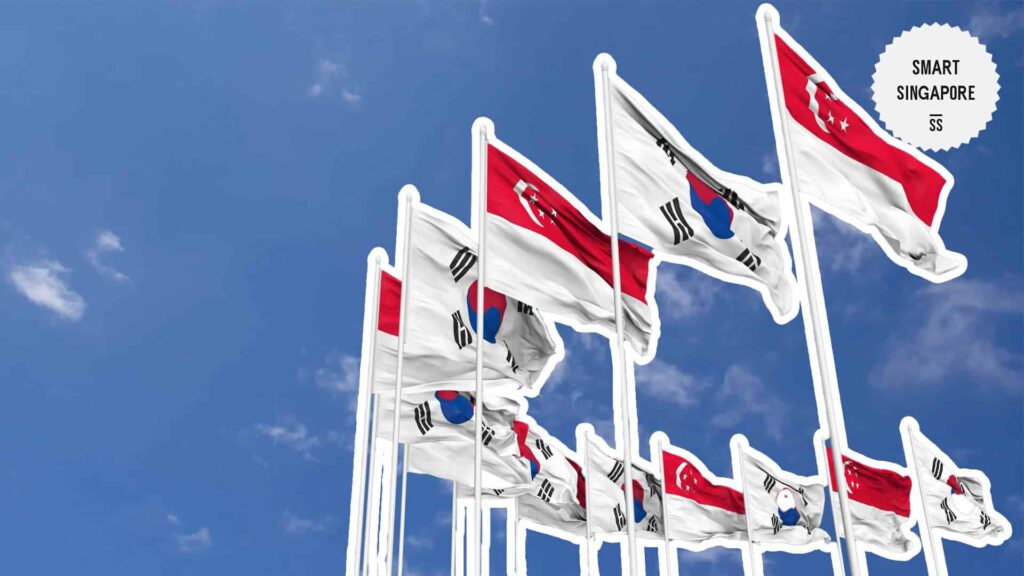
When it comes to choosing which of these two Asian countries to move to, your decision boils down to your lifestyle preferences, cost of living, and access to quality healthcare and services.
In summary, considering all the points covered, here are our insights on which city is superior based on the aforementioned factors:
| Factors | The Better City | Why |
| Cost of Living | South Korea | The living cost in South Korea is 2% cheaper than in Singapore. |
| Real Estate | South Korea | The average prices for real estate properties in South Korea are significantly cheaper. However, subsidised housing is more accessible in Singapore. |
| Diversity and Demographics | Singapore | Singapore has a significantly higher population of minorities, with many of them living in various ethnic neighbourhoods on the island. Meanwhile, South Korea is ethnically homogeneous. |
| Career Opportunities | Singapore | Both countries have very low unemployment rates, but Singapore beats South Korea at 2.1%. |
| Crime Index | Singapore | Both countries boast low crime index rates, but Singapore is slightly safer with a safety index rate of 76.5. |
| Healthcare | South Korea | South Korea and Singapore both offer universal healthcare to their citizens, but South Korea’s healthcare system index is higher than Singapore’s. Medical costs are also relatively cheaper in South Korea than in Singapore. |
| Tourism | Tied | Both countries in Asia offer plenty of tourist hotspots, but it all boils down to personal preference. Singapore boasts a tropical climate with more access to beaches, a metropolitan lifestyle, and numerous luxurious destinations. South Korea has more cultural and traditional sites like temples, palaces, and heritage villages. |
